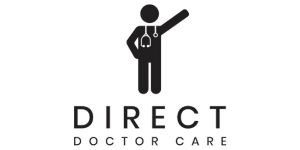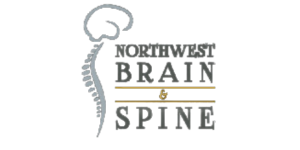
The Medical Management Podcast_Building Trust in Teams: Audio automatically transcribed by Sonix
The Medical Management Podcast_Building Trust in Teams: this mp3 audio file was automatically transcribed by Sonix with the best speech-to-text algorithms. This transcript may contain errors.
Jay Holmes:
Welcome to the Medical Management Podcast. A podcast focused on helping you level up your practice. Through interviews with some of the most successful leaders in the industry, we help uncover resources, tools, and ideas to help you level up your practice. Thanks for tuning in and we hope you enjoy today's program.
Jay Holmes:
Welcome back to the Medical Management Podcast. This is Jay bringing you another informative episode. Today, we get to spend more time with our very own Jesse Arnoldson. And, you know, he's going to discuss how trust is the foundational part to most team problems. And Jesse, these are my favorite, favorite days. We get to hang out and talk, and welcome.
Jesse Arnoldson:
Mine too, buddy.
Jay Holmes:
So, you know, let's think about this here, whenever we go into clinics that are having significant issues, it's always the Pareto Principle, right, the 80-20 rule, where 80% of their problems are people problems. We like to say that a lot and we don't just like it because it's fun, we like it because it's true. Bottom line. And so what's the common thread here?
Jesse Arnoldson:
You know, whenever we go into these clinics, Jay, they always have an assumption of what they think their problems are. And sometimes they see that they have people problems, but a lot, but most of the time they think that they have compliance or workflows or financial problems. And maybe they do to a certain extent, but they're caused mostly by the people problems that they have in their clinic. And quite often you can peel the onion back and at its core is a problem of trust, you know, and we can reference the management guru of Patrick Lencioni, and The Five Dysfunctions of a Team, but at the bottom of his pyramid is the first dysfunction, and that's a lack of trust. And so, you know, I don't think that you and I are, are preaching anything too off base. Multiple experts agree on the same thing, whether it's that you're bad at conflict or you're not getting results or you're, you feel like maybe your, your people aren't a good fit, whatever it may be, you can usually peel it back and find that it's a problem having to do with trust amongst your people.
Jay Holmes:
I couldn't agree more, you know, just being vulnerable is an outcome of trust. And, you know, if you trust your environment, you trust your people, then you're allowed, you're allowing yourself to be vulnerable. You know, I think being vulnerable is one of my most feared and favorite experiences and feelings ever, because, you know, if you're not vulnerable, then you're really not a learner, and that's kind of the motto that I go with. And so trust is key to that and it's key to growth. And so as a practice manager, you can decide that you can decrease the trust of your organization and increase all the work you have to do. Or you can increase the trust with your team and really decrease the work you have to do because everyone else is going to pitch in, you know, and that's the tradeoff.
Jesse Arnoldson:
And that's the thing, you know, a few, I've been listening to a few people talk about trust or the lack of it as a tax. If you live a life in which you withhold trust or it's very difficult to gain your confidence, you're going to pay a tax for that. You're going to do more work. You're going to have to buy more of your own tools. And what I mean by that is in your community, if you don't have a relationship with anybody and don't trust anybody, what's been found is that you will most likely have to buy all the tools that you would use one time rather than being able to go to a friend or a neighbor, a family member and borrow. And so it's this tax on your time, your money, that only occurs because of your ability or lack of ability to trust people. And so I think quite often Jay, you know, there's multiple problems when you come at the topic of trust. One of the most common is that people have different ideas of what trust means. And so some people feel like it's something that has to be hard-earned, like you and I need to spend the next five years together and you need to come through on a whole bunch of stuff before I ever put an ounce of confidence in you. And that's expensive. That's you know, if you live that life, you're going to be paying that tax that these folks we're talking about at a very high rate. But a lot of times people don't see trust that same way. There's different definitions, different expectations, and that is probably what leads to most confrontations around this topic.
Jay Holmes:
Absolutely. I love the analogy of borrowing tools or needing things, because, you know, I've gone through that in a neighbor, just recently bought a ladder that is strikingly similar to the ladder I have. And I'll tell you what, I probably use this ladder maybe once a month. So there are bountiful opportunities to borrow the ladder. And I looked at her and I'm like, what are you doing? Like, what, what about our relationship don't you feel comfortable with just saying, hey, Jay, can I borrow your ladder? You know, you kind of scratch your head and say, yeah, well, what's going on? But I love that because it's so true.
Jesse Arnoldson:
Think about, Jay, in MedMan we enforce a community that shares its tools, right, it states its expertise. That ladder, I don't need to go out and teach myself exactly how to go do X, Y, Z in this EHR, I don't necessarily have to go buy my own ladder, I can call somebody and ask and get the help, but that only comes from a trusting relationship. Otherwise, you know, like I said, you're paying that tax. I'm going to spend the next two hours figuring out how to do this specific problem because I don't have anybody in my life to reach out to and I don't have the trust built to do so.
Jay Holmes:
Totally. Absolutely. And, you know, we're always talking about building trust, but it seems like we abuse and overuse the term to the point where maybe it's become a buzzword. How do we actually develop genuine trust in one another?
Jesse Arnoldson:
Yeah, you know, I think it starts with getting on the same page about what trust means to each other. You know, if you and I are the ones having problems, Jay, sometimes it can pay dividends down the road in the conversation. If you and I are just, same page about what that means. From a lot of people trust is, they kind of pervert the idea of what trust is. They think, you know, this person is asking about how my project is going. They don't think I've got this. They don't trust that I know what I'm doing. They keep inserting their own ideas and I don't like that. They don't, I'm the one that, you know, knows what I'm doing, they don't trust that. That's, that is, in every sense of the word, a perversion of what trust is, truly is. And so a lot of times you're having to pull people back from what a false sense of trust is. And you can't move on. You can't have a different conversation or a better conversation around trust and confidence in one another until you fix that.
Jay Holmes:
Well, it's not maybe a false sense of what trust is. It's a false sense of the questioning of, right, the lack of trust. I mean, that's probably more of it where all these, these cues are picked up, as, you know, someone doesn't trust me, the insecurity part of it. And it's not that why I don't get trusted, it's these actions are weakening my trust when it's completely not, right? You get in this game where I don't want to be helpful. And that's the beauty of life, right, 99% of the time intentions are right, actions are wrong or actions are interpreted as wrong, and I think this is certainly, you know, circumstance. So keep going.
Jesse Arnoldson:
Well, it's interesting. If this was a simple problem to solve, there'd be a simple solution. These are complex issues around people and emotions. And so, think about what goes into this interaction. Somebody might be insecure, somebody might be new to the relationship, somebody might just be trying to hold somebody accountable, right, like they might just be trying to do their job of holding somebody, of oversight, right? Let's take, for example, I saw a scenario play-out in a clinic not too long ago where a new manager came in and had one of their mid-level managers working on something, working on kind of the roles within their department. And that mid-level manager, that lead, just took off and started making changes. And this new manager kind of inserted herself and started asking questions and wanting to get to know it. And that came across as quite offensive, why? One, because I think that the lead was a little bit insecure in her role, already, and that had nothing to do with the new manager, and then this new manager needed to just get in the know, insert herself, apply her own ideas, be involved, not necessarily to be the one to make the decisions or, or to micromanage it, but to get involved and that came across as a lack of trust because they hadn't built anything yet. And so the same actions that maybe could be taken by a manager who had been there a little while and had built relationships and built trust and had kind of some common practices, could have done it the exact same way and had it come across differently. And so all of these problems have multiple layers to them, is what I'm trying to get to.
Jay Holmes:
Yeah, it's so, I mean. It's so funny, I mean, it's funny, but it's not because, you know, you have this manager who's trying to build trust by saying, I want to be involved, but in doing so, I care, I want to be involved, I want to have you feel like, you know, I care about you and I'm going to interact with you. And in doing so, creates the exact opposite environment that they want, which is like
Jesse Arnoldson:
And then they can't figure out why, it's stuck because, you know, what, what did I do that was so wrong? I just, I just started to have a conversation about this.
Jay Holmes:
Absolutely. Yeah, yeah. People, people are amazing, amazing creatures. Let's just say that.
Jesse Arnoldson:
And so, Jay, back to the original question. You asked me, you know, it's, it's become a buzzword. How do we actually develop authentic trust, right, or genuine trust? I think step one, which I gave way too long of an answer for, was, get on the same page about what trust means and what it means in relation to accountability, in relation to how you're going to do your work, the confidence you already have in this person. So same page there, same page in there is absolutely essential before moving on. I think after that, it's realizing that building trust requires you to do extra work. It requires you to spend extra time with this person that you're trying to develop confidence in or between, and it requires more opportunities that back to actually develop trust. You aren't going to build it by simply, you know, engaging in small talk or going out after work for drinks. Those things are fine. Company parties are fine. Those are moments where you can socialize and stuff, but trust is developed through working together to solve problems, getting through hard trials, doing hard things, accomplishing stuff together, having difficult conversations, giving feedback, and receiving it back and forth, those things require opportunities and you have to have a lot of them to practice and to build up. And so, you know, as I've realized, I've had to, if I really need to build trust in somebody, I've got to go out of my way to create an opportunity for that person to do what I, you know, to, to do it right. And that doesn't happen, if you withhold those or you just go about your normal day, you have to be looking for ways to extend an opportunity to build that relationship, that trust.
Jay Holmes:
Yeah, right, but to the story you told, one of the best ways in my mind and in my experience to build trust is to, to extend that space for that person to work in. And, and, you know, just, you think about how and just relate it to kids, you know, you can certainly tell your kids what to do and how to do it all the time, because, you know, inevitably they're not going to do something right, most of the time, you know, because they're learning things and you know what I'm talking, you know, just, they're always learning. And the fastest way to decrease that trust is that no matter what they do, you're always inserting, well you can do it this way, you should've done that, you should fix that. And I think that goes to how we build trust in teams and say, hey, here's a directive or here's a goal and you have the, you know, the autonomy to do it, how you see fit, and then afterwards, I'm going to, then, question how you felt that outcome was, rather than immediately saying, well, in my opinion, you could have done it better and these are the ten reasons you could have done it better. That, that ultimately as a human being is very hard to process because usually, we lead with these are the things that you could have done better rather than let's look at both sides and really build from there. And there's just been, there's been studies done to show that every time you try to add your own ideas, or your idea of an improvement, or whatever to a situation or a project, it reduces the motivation and the passion that the original person had, and you actually get a worse outcome, even though you've had tried and trued, you know, you've already tripped on that rock and you're saying don't trip on that rock. Oftentimes because of our psychology we, we then take that as you don't trust me, then it turns into I'm not as motivated and you don't work as hard and you actually get a worse outcome for pointing out the things, if you do that. But if you can build that relationship with, hey, when you get stuck, come to me.
Jesse Arnoldson:
Yeah.
Jay Holmes:
And I'm going to help you through it. But I'm not going to lead and say I don't think, I know that you're going to trip on that rock, so I'm going to tell you about it. That's just, it's hard for a human being to take that. And so it's really having the patience and having the reserve to say, I'm here for you and I hope that when you get stuck, you can come to me and then sitting around. And believe it or not, how, how you mentioned, we think trust is built by a lot of little interactions, but it's almost, it's really built by allowing less interactions but more guided from the other party coming to you. So it's not you saying, hey, you know, every day, let me say hi, hi, hi, it's really saying, hey, you do your own thing, you wander around and when you get lost or you get stuck, then come to me. And that actually is the thing that builds the trust, not, you know, I'm going to come by and say hi to you at your desk and we're going to feel, you know, warm and fuzzy and, and pretty soon we're going to be the best of friends and trust each other. That's not how it does, it's not how it works.
Jesse Arnoldson:
You know, I think in some instances, for our listeners that are looking for a specific, you know, two or three things that they can do to try and help develop trust within their team, I think one of them is exactly what you're talking about. You know, let loose on the reins a little bit, don't offer that last 5%, like if somebody shows you what they're doing and there's, you could make a 1 to 5% critique, don't, just let it simmer, right?
Jay Holmes:
Totally, yeah.
Jesse Arnoldson:
Let people have their space to work, that will help. Two, setting very defined expectations of what accountability looks like. Hey, I really want, you know, I have this project in mind for you, here's a space to work within, here are the parameters to do whatever you want. I'm going, but I am going to check in and I don't want you to take that as that I'm micromanaging or I don't trust you, but this is what a healthy accountability looks like. I'm going to check in and I'm going to ask questions, I'm going to offer up ideas, but really this is your thing. And then, you know, another version of it is I like to build trust through problem-solving. I like to go to somebody and ask for advice. And when people do that, because I've, I've had people do that with me, you know, you've done that Jay, in instances where my opinion isn't necessarily needed, but sought and that one does help my ego a little bit when that happens, I admit to that, but to it, it makes me feel like a trusted confidant. And so if I can turn around and offer that to somebody and say, hey, I'm dealing with this issue, I think I know what I want to do, but I'd really like to get your insight because I like the way you think and I want to see different viewpoints on it before I make a decision. And walking through that and asking questions, being careful not to jump and start debating whether, you know, whether what they're saying is right or not. But those are the types of things that you can do. They're not huge. They don't require you to take time out of your, you know, shut the clinic down and go do trust falls somewhere, but these are real interactions with your team that can build trust. And probably the last one, Jay, if you're in touch with your team, you're going to figure out that 75% of them are going through something in their lives. And I don't think that we should become counselor, but being able to have a finger on the pulse of how our folks are doing and being there for them, that is absolutely a wonderful opportunity to build trust. And it has to be sincere, you have to be coming from the right place. If they get the sense that you're doing this to manipulate them and try and, you know, build trust with them because their grandpa died, like that is going to backfire. So you really do need to come from a place of genuine concern for your, your folks.
Jay Holmes:
Yeah, absolutely, and, and I understand, you know, we're all people and there are influences outside of what we see that impact us and if you decide to exclude that, then, you know, it just makes it harder for all of us. Let's end this right here with a, you know, let's say that we kind of know that it's important, but let's just dive into why, you know, what do you see here as the biggest benefit? What's the power that comes from, from building trust with your team?
Jesse Arnoldson:
You know, it allows for so many of the other right things to happen. If somebody trusts that they can come to me and disagree, if they can come and argue with me and they know I'm not going to, that I'm going to, you know, respect what they're saying, I'm going to ask questions, I'm going to engage with them, and very well might change my mind but even if I don't, you know, I show those other things, I'm going to get the best out of my group. If they feel they can be vulnerable, then they're going to work, you know, without fear and anxiety. If they're not worried about making, that mistakes are going to sink them, then they're going to try harder, they're going to implement new ideas, they're going to bring new ideas to the table. I just imagine a workplace, a team in which that fear and anxiety of failing or retribution or getting my ideas knocked down doesn't exist. And what can you do if you have so much more of your mental capacity returned to you because you're not worrying about those things? What more can you do? It's, I feel like the sky is the limit because most of us probably have twenty or thirty or even more percent of our mind occupied by those anxieties and fears, right?
Jay Holmes:
Yeah, I mean, yeah. And you get to work on the business instead of in it, right? Like what, you get to work on building better systems and processes that reduce the amount of work that you have to do. But you don't do that. You don't, you know, that's what occupies our time, is the here and now, which is the relationships rather than how can I build a bridge for the future? And
Jesse Arnoldson:
It's efficiency, it's effectiveness. It's just a great career, right? Like it's a great place to work if you can live within a team like that, like you can enjoy going. And that's always kind of my, getting back to my core purpose in life, I want to lift people up, I want to give them a good life. And so much of that is hard, either allowed or disallowed by the place that we work in. And I want people who work with me and work within an organization which I'm in to have that ability and the ability to enjoy where they work, to be engaged, to not dread coming in or fear coming in and hoping that that adds years to their lives, right?
Jay Holmes:
Absolutely. You know, and let's just add something to close on here, because building trust doesn't mean that you're just bubbly and happy all the time, right, but it allows for those crucial conversations, allows for the, for confrontation. You know, certainly, the place we work here in MedMan is amazing for that. And you know, one of the main reasons that really drew me in is this trust in the ability to feel like, you know, the leash is as long as I want to make it and I get to roam where I want to roam. But at the same time that is built on, I mean, you and I've certainly had our fair and share of, you know, like with buttheads really hard where it hurts a while after, but after, you know, but in the moment you're like, we just need to do this, not for the sake of my pride or yours, but for us to get past this so that we don't add another weight to our shoulders that we have to carry around for another lifetime, right, which, which we do, so we get over it and then it's gone and it's like oh, we're moving on, we had to do that and we did it. And that takes time, but it really is the space that, and the understanding that the reason we get frustrated is because we both really, really care about doing great things and with that understanding, the association of being frustrated isn't I'm frustrated at you Jesse, it's I'm frustrated because I feel like this path is going to get to our goal better, and it's not me and you. It's a what decision or what path is right. And it makes all the difference, you know?
Jesse Arnoldson:
It does. And now, can I leave us on one way, one more, one additional way to build trust and you triggered it with me is that there have been lots of times like you said, where we, we've ran into each other or I ran into it with one of our partners or whatever and come out on the other side trusting you guys more. And it's because of either, you know, you argue the ideology of the argument rather than the personal whatever, you know, the personal politics or you've given me the forgiveness or grace afterwards if I've overstepped. And that piece, you know, we're all going to have those confrontations. They are wonderful opportunities to build trust. Those are the areas where we enter the danger and come out better than, on the other side, and it's only because of your guys' ability and willingness to forgive emotions, and give me grace to work within that that has happened, and it's what's developed, what I consider a super deep relationship amongst us partners, because of that.
Jay Holmes:
Amen, brother. And what a way to end this and for everyone out there, you know, thank you for tuning in, and Jesse, thank you for hanging out here and sharing your insights on trust.
Jesse Arnoldson:
Absolutely.
Jay Holmes:
Everybody for the show notes, transcripts, and material from the show and really everything else MedMan does, why don't you head over to the website at MedMan.com and check things out? We're going to be here twice a week sharing insights, ideas, and tools to help you level up your practice. And again, thank you so much for hanging out with us.
Jay Holmes:
Thanks for tuning in to the Medical Management Podcast. We hope you enjoyed today's featured guest. For the show notes, transcripts, resources, and everything else MedMan does to help you level up be sure to visit us at MedMan.com.
Sonix is the world’s most advanced automated transcription, translation, and subtitling platform. Fast, accurate, and affordable.
Automatically convert your mp3 files to text (txt file), Microsoft Word (docx file), and SubRip Subtitle (srt file) in minutes.
Sonix has many features that you'd love including share transcripts, world-class support, upload many different filetypes, automated transcription, and easily transcribe your Zoom meetings. Try Sonix for free today.
Episode Summary
MedMan is back with another remarkable episode!
In this episode, Jay and Jesse examine the meaning of trust and its importance inside a community. Jesse expresses his thoughts on the effectiveness of building confidence in people’s relationships, using examples based on his personal experience. Together, they dive deep into the meaning of trust and those places where the word is misused or misinterpreted; having the team on the same page will build a foundation. They talk about the necessity of trust inside MedMan and how this has been the decisive factor to the community’s success so far.
Follow Jay and Jesse on this episode and learn how you can gain trust from the people near you!
Key Take-Aways
-
- Sometimes, organizations might lack trust and confidence between their team members.
-
- Reliance and confidence are essential MedMan values.
-
- Trusting the people around you makes you feel comfortable being vulnerable.
-
- Withholding trust can make your life difficult and less enjoyable.
-
- The existence of trust can be reflected in the simplest of things, such as sharing.
-
- Make sure trust has the same meaning for you and your team.
-
- Spend quality time with the person you want to build trust with.
-
- Overcoming obstacles and accomplishing tasks together is the foundation of a trustful relationship.
-
- Correcting other people’s work can make them question your faith in their effort and reduce their creativity.
-
- A team can achieve astonishing things when feeling trusted.
-
- MedMan has established trust, reliability, and effective cooperation within its members.
Resources
-
- Know more about MedMan, here
-
- Find Patrick Lencioni’s book “The 5 Dysfunctions of a Team” ,here.























